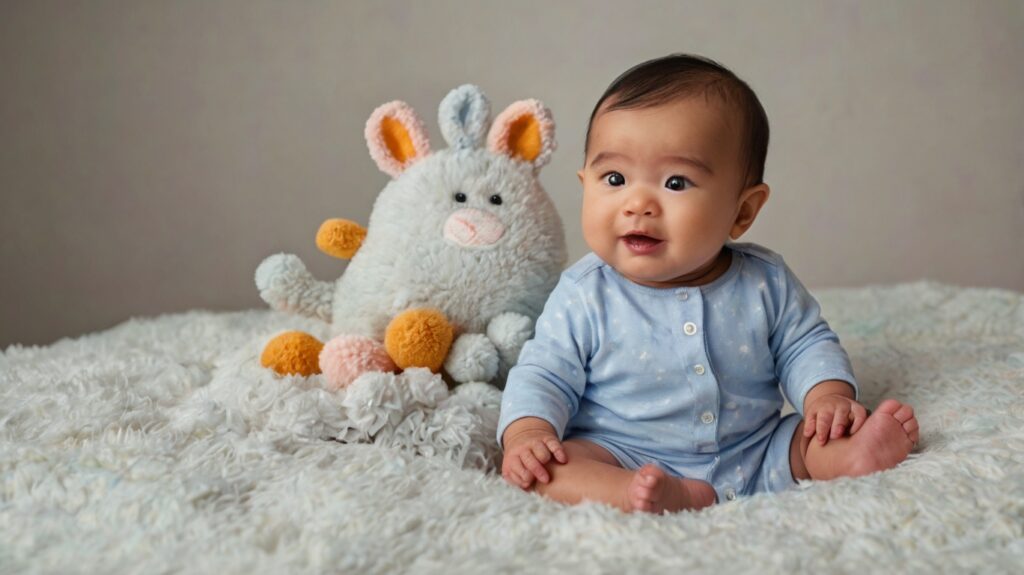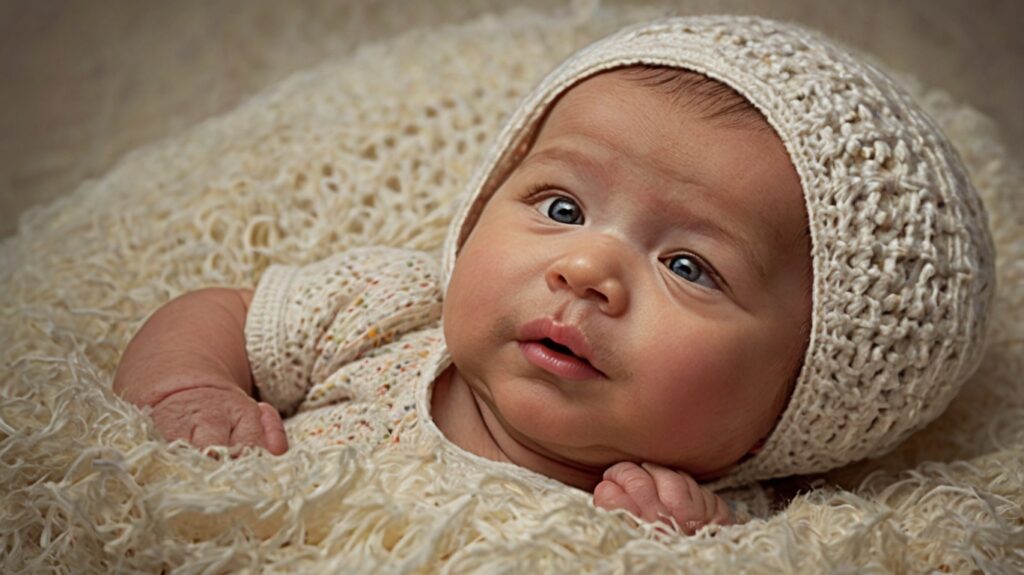
By the time your baby reaches 2 months, you’ll start noticing exciting new skills and changes in their personality. At this stage, they’re more alert, interactive, and beginning to develop stronger physical and emotional connections with you.
Physical Development
At 2 months, your baby’s neck and upper body strength are improving. During tummy time, they may be able to lift their head and chest for a few seconds, showing better control of their muscles. Their movements are becoming smoother, and reflexes like the startle reflex may be less pronounced. You may also notice your baby’s hands starting to open more instead of staying in tight fists.
Cognitive Development
Your baby’s brain is growing rapidly, and they’re becoming more curious about the world around them. They may start tracking moving objects with their eyes and focusing on faces for longer periods. Patterns, bright colors, and high-contrast objects are particularly interesting to them now. They’re beginning to associate cause and effect, like realizing that crying often results in comfort or feeding.

Social and Emotional Growth
This is often the magical time when your baby’s first real smile appears—known as a “social smile.” They’ll respond more to your voice, cooing, and facial expressions. Babies at this stage crave interaction and may start “talking” back with little gurgles and coos when you speak to them.
Feeding
Most 2-month-old babies still feed every 2–4 hours, whether they’re breastfed or formula-fed. Growth spurts may occur, leading to more frequent feeding sessions. Watch for hunger cues like rooting, sucking on hands, or increased fussiness, rather than waiting for crying to start.

Sleep Patterns
While your baby is still sleeping a lot—about 14–17 hours in a 24-hour period—they may begin sleeping for slightly longer stretches at night, especially if they’re getting full feeds during the day. Naps are still frequent, and every baby’s sleep pattern will be unique at this stage.
Health and Milestones Check
Your baby’s 2-month check-up is an important milestone. The pediatrician will monitor their growth (weight, length, and head circumference) and developmental progress. This visit often includes the first round of routine vaccinations, which protect against serious illnesses.

Tips for Parents
- Give your baby plenty of supervised tummy time each day to help develop neck and shoulder strength.
- Talk, sing, and make eye contact with your baby to encourage language and social skills.
- Offer safe toys or rattles that are easy to grasp to help develop hand-eye coordination.
- Keep track of feeding and sleeping patterns so you can notice changes or concerns.
By 2 months, your little one is quickly transforming from a sleepy newborn into a more engaged, expressive baby. Each smile, coo, and new skill is a sign of healthy growth and development—and a reminder of how quickly this special stage passes.